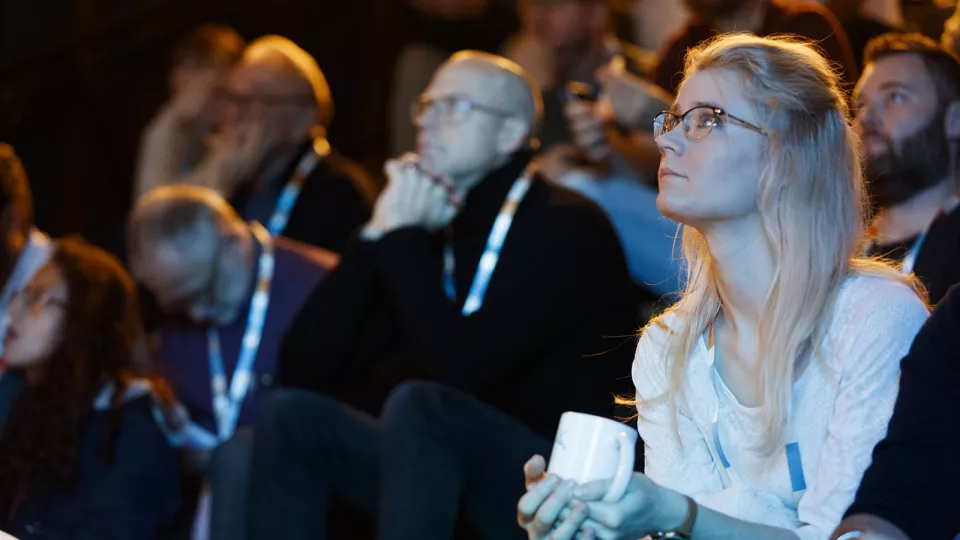To reach set targets we need new ideas and business solutions in a number of areas. Here are a few examples:
- Development of bio-based, plastics and finding sustainable feedstock’s for plastic materials
- Ways to decrease the usage of plastic materials / ways to encourage more sustainable use of plastic materials
- Digital solutions to track plastic materials through the entire value chain
- Design of circular material flows for plastic materials
- New sustainable product designs that can change our perception/behaviour on plastics.
- Solutions on how to reuse plastic items
- Ways to enable households and companies to better sort plastic waste
- Better solutions to sort collected plastic waste
- Recycling of all plastics from packaging to building waste, automotive parts, electronics, textiles and other consumer items
- Business solutions that increase demand of reused plastics
How can I contribute?
We invite participants with different backgrounds and experiences. What is really needed is your great interest, willingness to think in new ways and desire to collaborate with others, during 24 hours, to come up with a solution that will be pitched to a jury. You may be a student, entrepreneur, technical expert or just a citizen with a deep interest for questions concerning plastics, environment and climate.
What happens to the ideas?
Climathon will end with the different teams pitching their solutions in front of a jury that give feedback and finally chose a winning solution. The goal is that several of the ideas will become real within the organisations that run Climathon in Lund or elsewhere. The jury consists of persons with leading positions in the organisations they represent.
Price
The winning team will be sent on an amazing trip to the beautiful town of Perstorp, surrounded by beach forests and lakes. The trip will include a visit to Plastens Hus and lunch. All expenses will be covered!
Organisers
Climathon is co-arranged by Lunds kommun, Lunds Renhållningsverk, EIT Climate-KIC, Sysav and Lund University. Other partners to Climathon in Lund are Ideon Innovation, Venture Lab and Neue Effizienz.
Background
Yearly around 280 million tonnes of plastic are created. A large portion of all this plastic is used in single usage items. However, plastics are used in most product groups. The most important categories after packaging are buildings, automotive and electronics. Plastic is a very versatile and useful material with enormous advantages in many areas. In many cases the alternative to plastics are expensive, less suitable and have large environmental disadvantages. At the same time, there are huge problems with our current extensive usage of plastic. Plastics commonly have fossil origin, which contributes to CO2 emissions when incinerated. Yet another problem is that many plastic materials release toxic substances and degrade into microplastics, with uncertain health effects that are widely spread in nature. Littering and plastic in the oceans are other well-known problems. The variety of different plastic materials is a huge challenge in the recycling industry.
In Sweden, packages fall under the producer responsibility, which leads to some material recovery and reuse of plastic consumer packages. However, the collection rate is low compared to other waste fractions, around 50%. A large share of the plastic packages that are collected are not recycled but incinerated. Plastic products other than consumer packages are not covered by producer responsibility. Of all the plastics used in Sweden, only 16% is recycled. The Swedish recycling rate is still high compared to the EU or globally.
What makes recycling of plastics complicated is that there are many different types of plastic materials with different features and also several additives, and they need to be separated into different recycling streams. Some types can be easily and profitably recycled while others are not recyclable, at least not with a reasonable economy compared to incineration. The five most common types of plastics are:
PE (Polyethylene) the most common type of plastics used in packaging but also common in other applications. PE is easily recyclable.
PP (Polypropylene) the second most common type of plastic used in packaging. Common in plastic films and food packages. PP is easily recyclable.
PS (Polystyrene) frequently used in single use items and as insulation, both in packages and in the building sector. PS is expensive to recycle in relation to the value of the material.
PVC (Polyvinyl Chloride) This type of plastic is commonly used in the building sector due to its durability and inherent fire-retardant properties. It often contains unhealthy additives. PVC could be interesting to recycle if there were large quantities of it that did not contain too much additives. Currently PVC is a large obstacle for recycling when it is present in PE or PP material flows. PVC may release toxins when incinerated.
PET (Polyethylene Terephthalate) is used mostly for textiles such as fleece clothes but the second largest usage is plastic bottles. The bottles in the Swedish pant system can easily be recycled but other PET-fractions are recycled to a lower extent.


